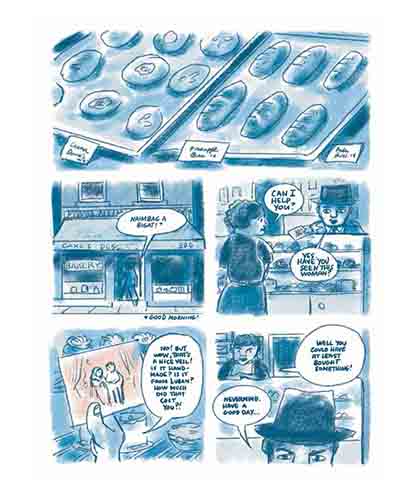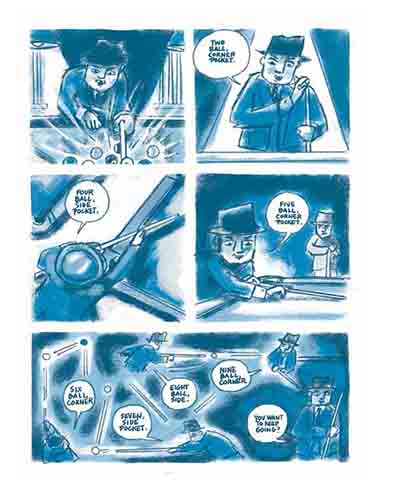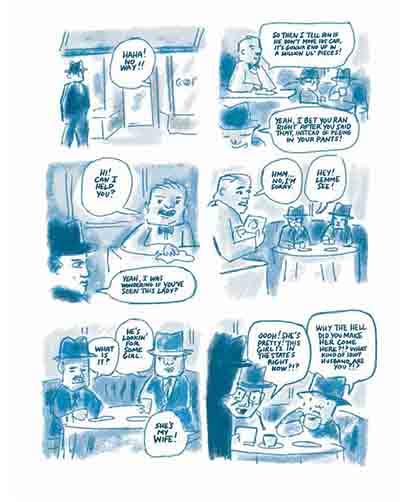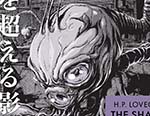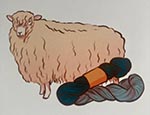To check out artist Rina Ayuyang’s Instagram is to find oneself awash in art and colour, offering insights into what inspires her. These colour-pencilled hues inform The Man in the McIntosh Suit, her Filipino-American story of love, immigration, sexuality, and longing set in San Francisco during the Great Depression.
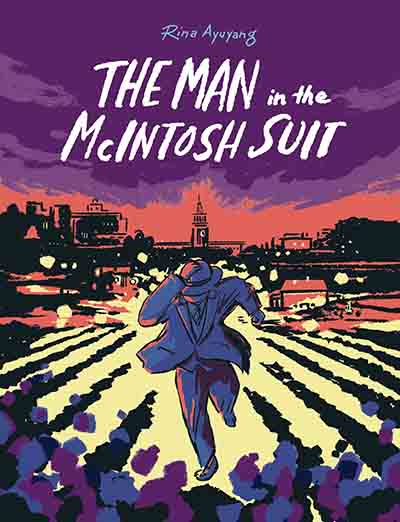
There is a lot going on in this book, starting with the little-known history of people who moved from the Philippines to America in search of a dream. Filipinos refer to these early settlers as the ‘manong generation’, the elders who arrived en masse in the first decade of the 1900s and began setting up small communities in states like California that hired them as low-paid farm or blue collar workers. It is a story of immigration as old as time, with the flip side to their movement being the family members they left behind. Then, as now, the immigrants—some highly qualified, with degrees that suddenly meant as little as the paper they were printed on—were compelled to take on menial labour that residents didn’t want.
Ayuyang hints at the humiliation and exploitation of those early settlers but chooses to focus a larger part of her tale on the emotional impact of their move. She doesn’t say it explicitly, but her characters exist at a time when many of the manong were forced to be single their entire lives on account of America’s harsh and restrictive anti-miscegenation laws. The Immigration Act of 1924, for instance, enforced racial segregation and had a devastating impact on families in both continents.
To her credit, this story doesn’t dissolve into pathos. It has moments of genuine sadness offset by humour, brought out by the little ways in which these lonely men try and find a semblance of warmth, some reminders of home in a country that needs their labour but refuses to acknowledge their existence. At the heart of it is Bobot: armed with a degree in law, reduced to working on a farm for a pittance, and pining for a wife he left behind in Manila. When a letter from a cousin informs him that she has been spotted in San Francisco, he drops everything and moves to the city. What he finds makes him re-evaluate his choices, and the future.
Not everything about the writing works but, for every incongruous turn of phrase (“Man alive, Bobot,” says one of the characters) there is a touch of authenticity in the use of portmanteau words like ‘Aysusmaryosep’ (for ‘Oh Jesus, Mary and Joseph). Ayuyang also has an interesting way of offering a lot of information with minimalist panels, mirroring her interest in old musicals where seemingly trite lyrics pack an emotional wallop. She has a firm grasp on her story, which never falters, and ends up giving us not just an insight into a lesser-known aspect of American history, but a peek into a community that still hovers around the margins of literature in North America.
It’s interesting to consider how things have changed. Millions of Filipinos continue to immigrate, but there are now a significant number of women who travel, leaving behind husbands, parents, and children whom they support while working abroad. The Man in the McIntosh Suit sounds like the kind of story that ought to inspire a sequel.
Rina Ayuyang • Drawn & Quarterly, $24.95
Review by Lindsay Pereira





